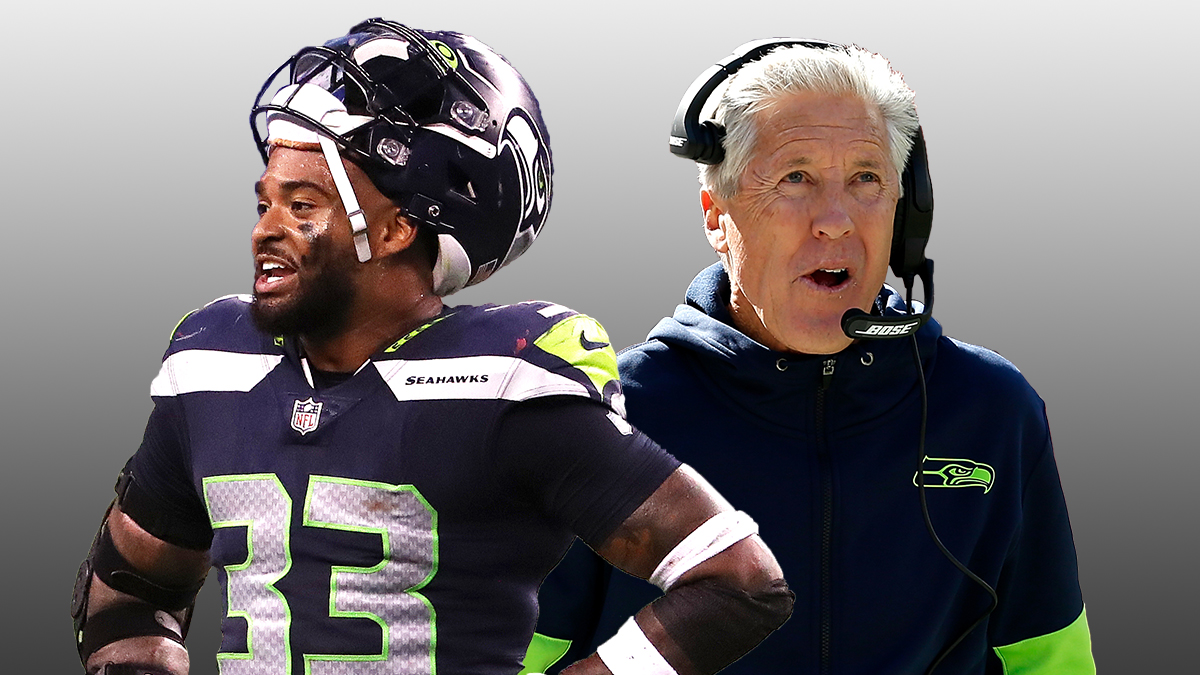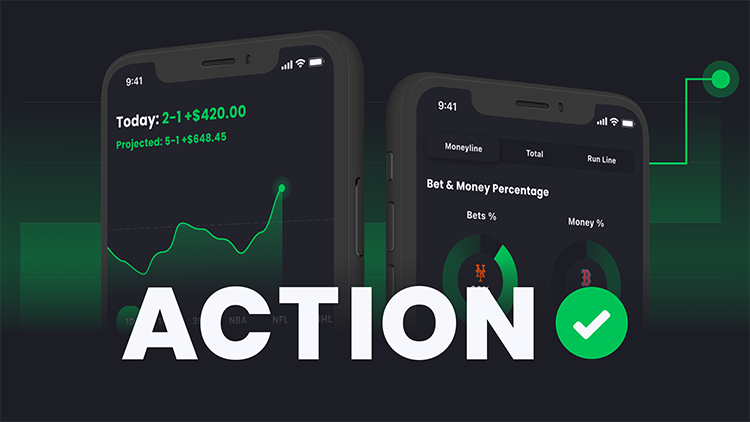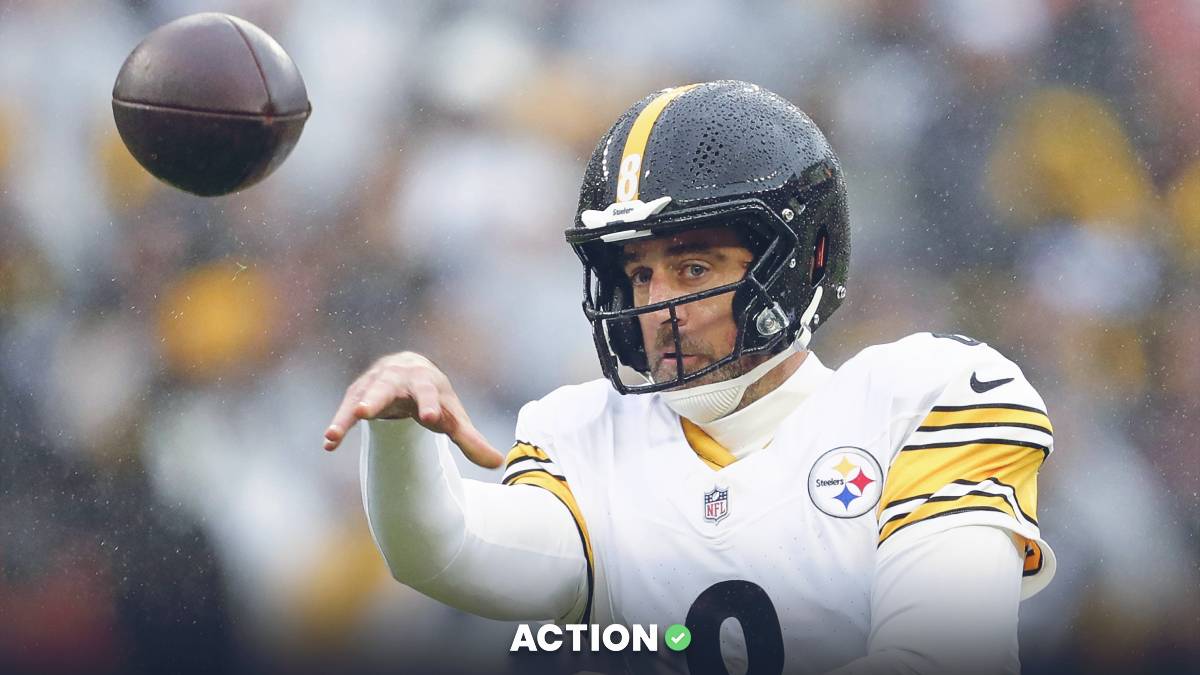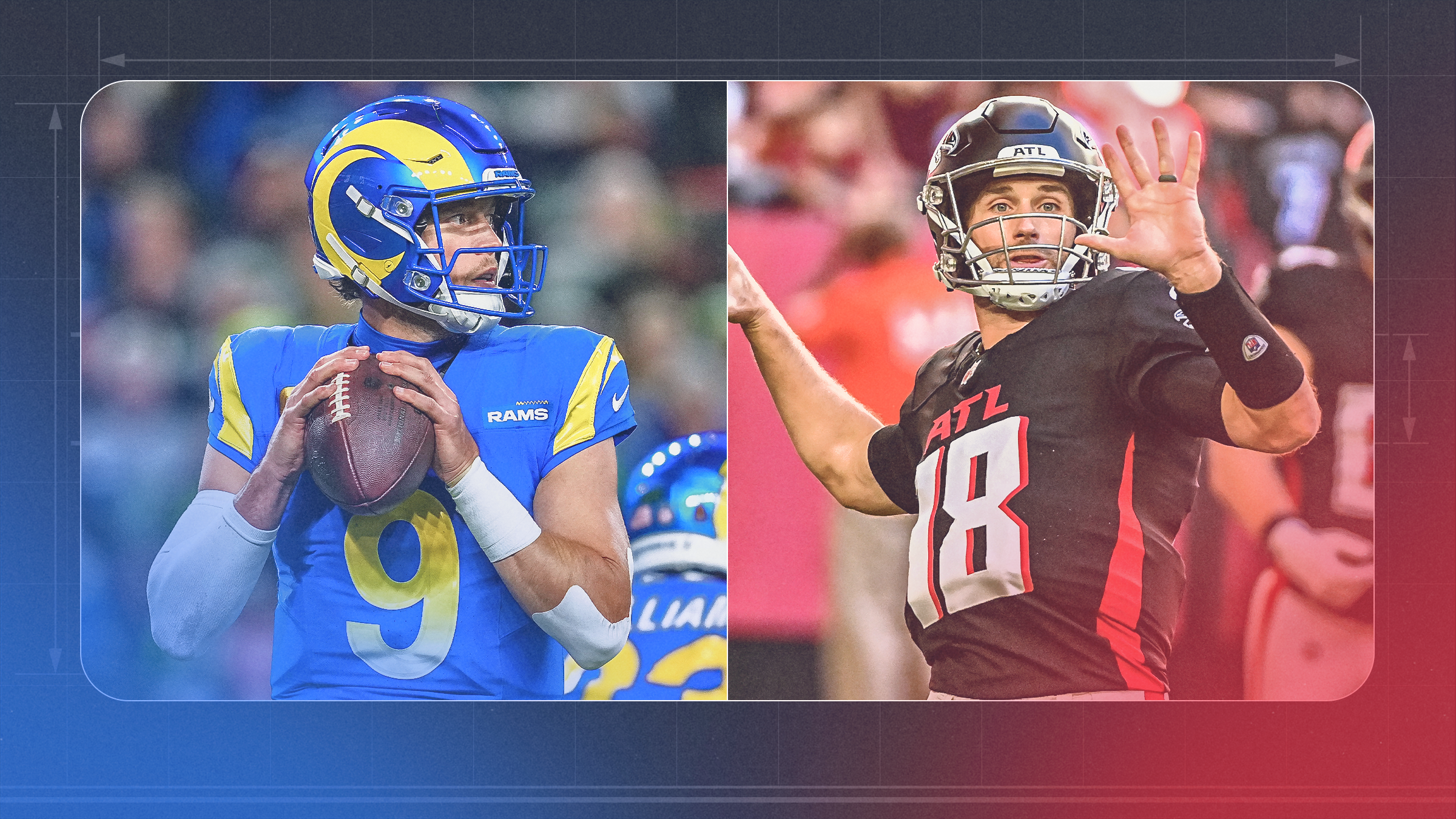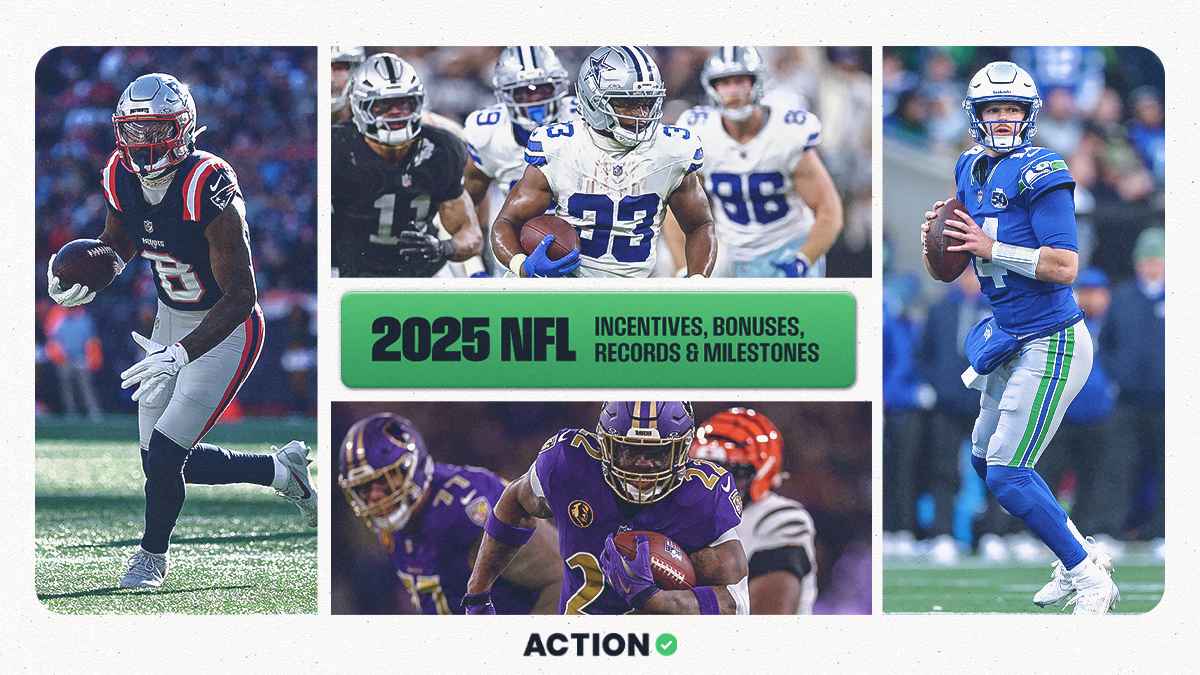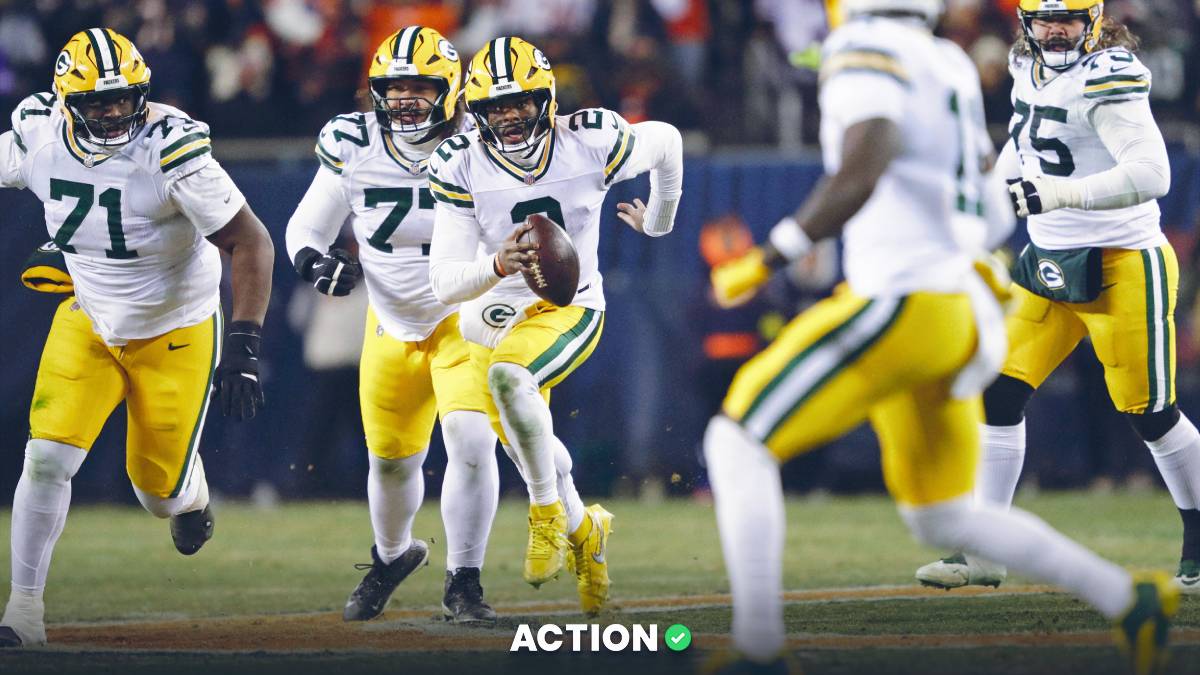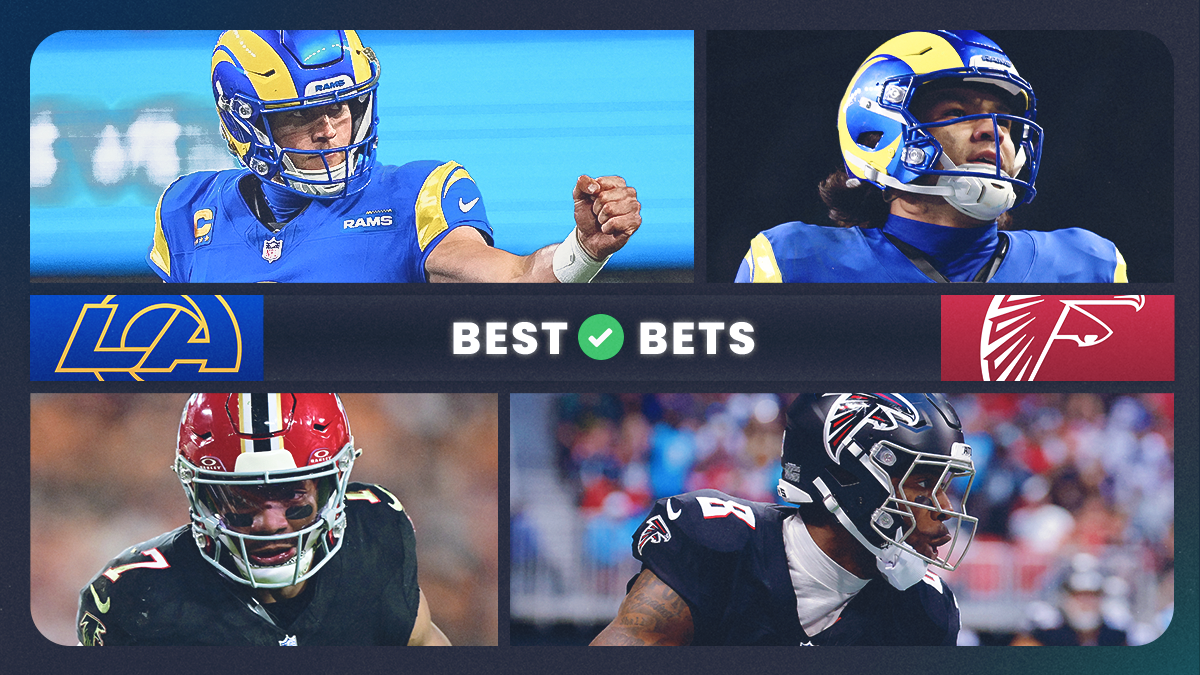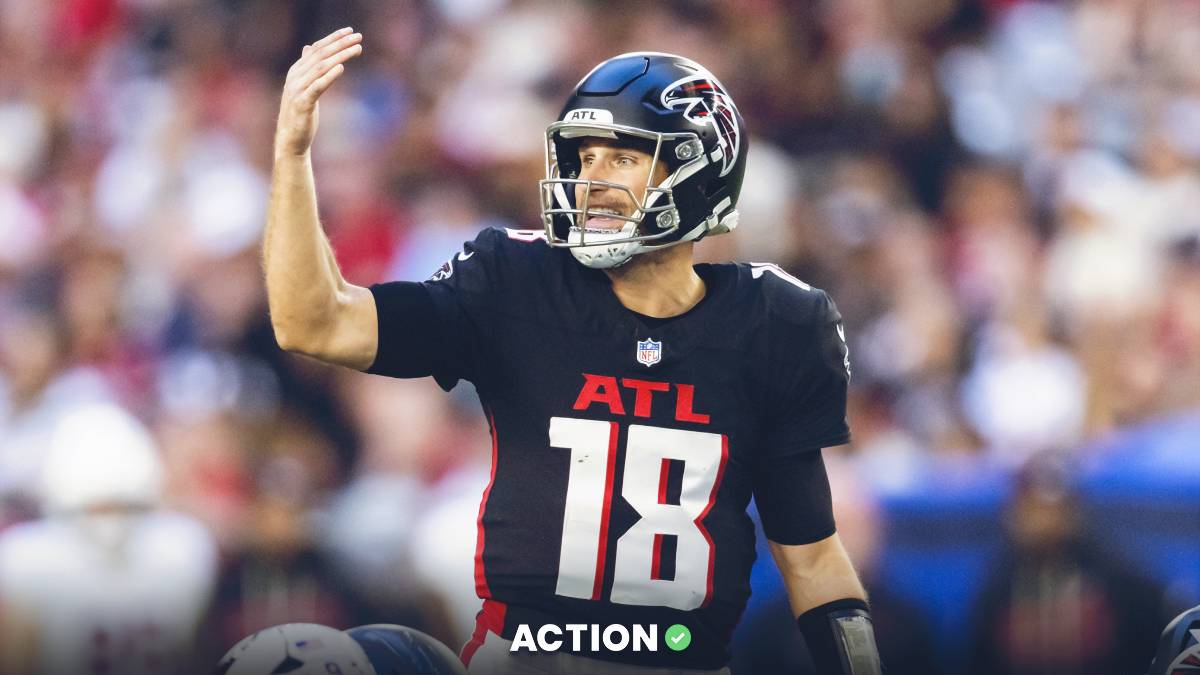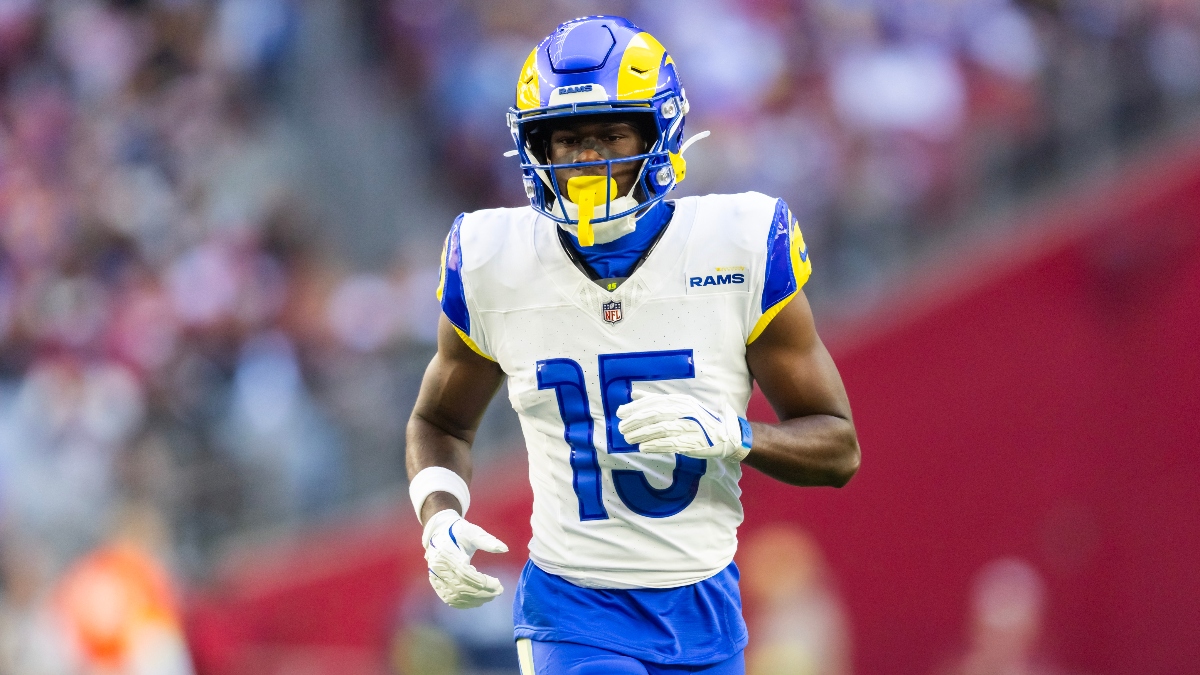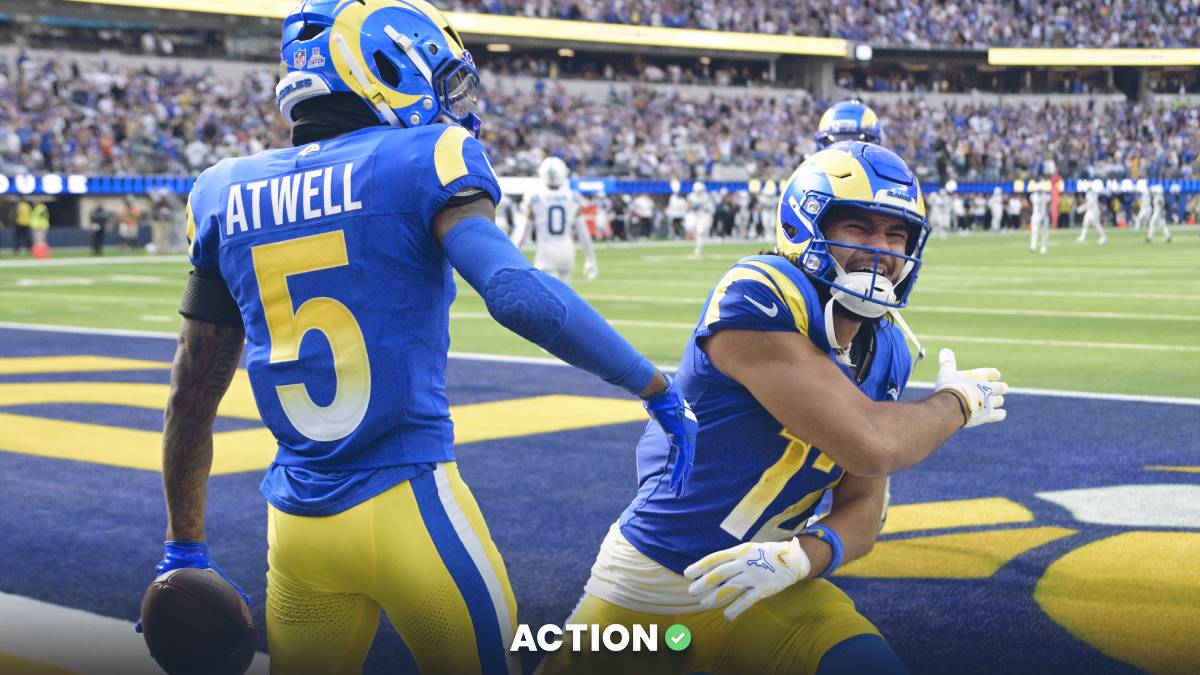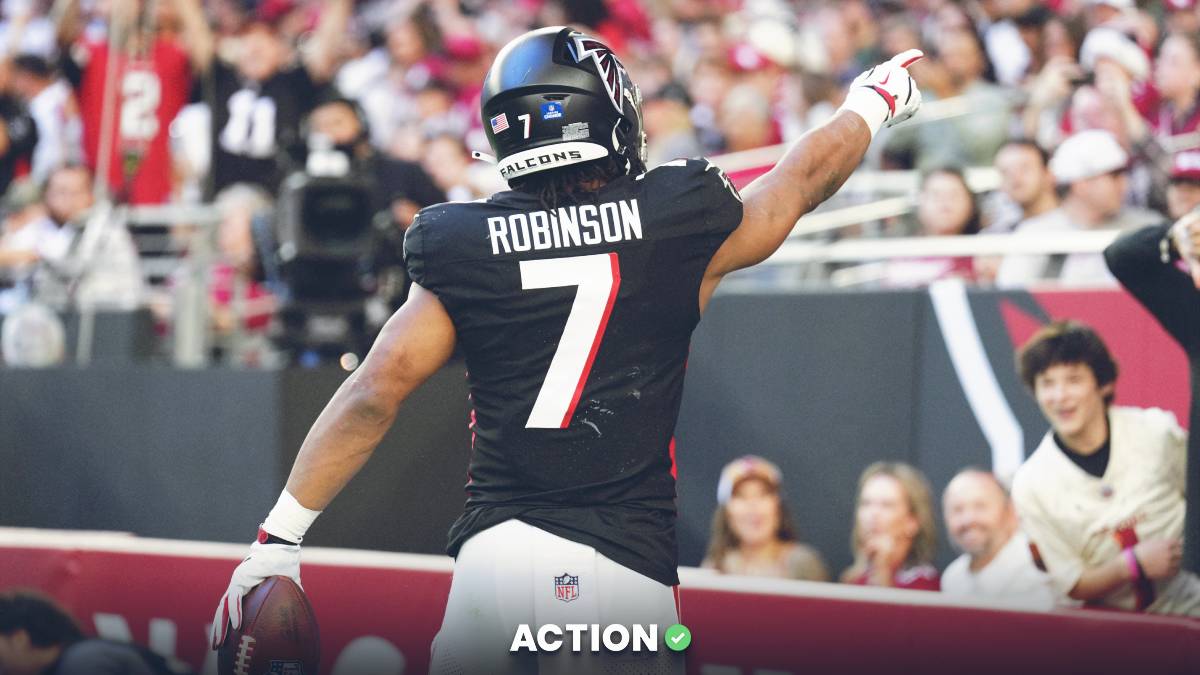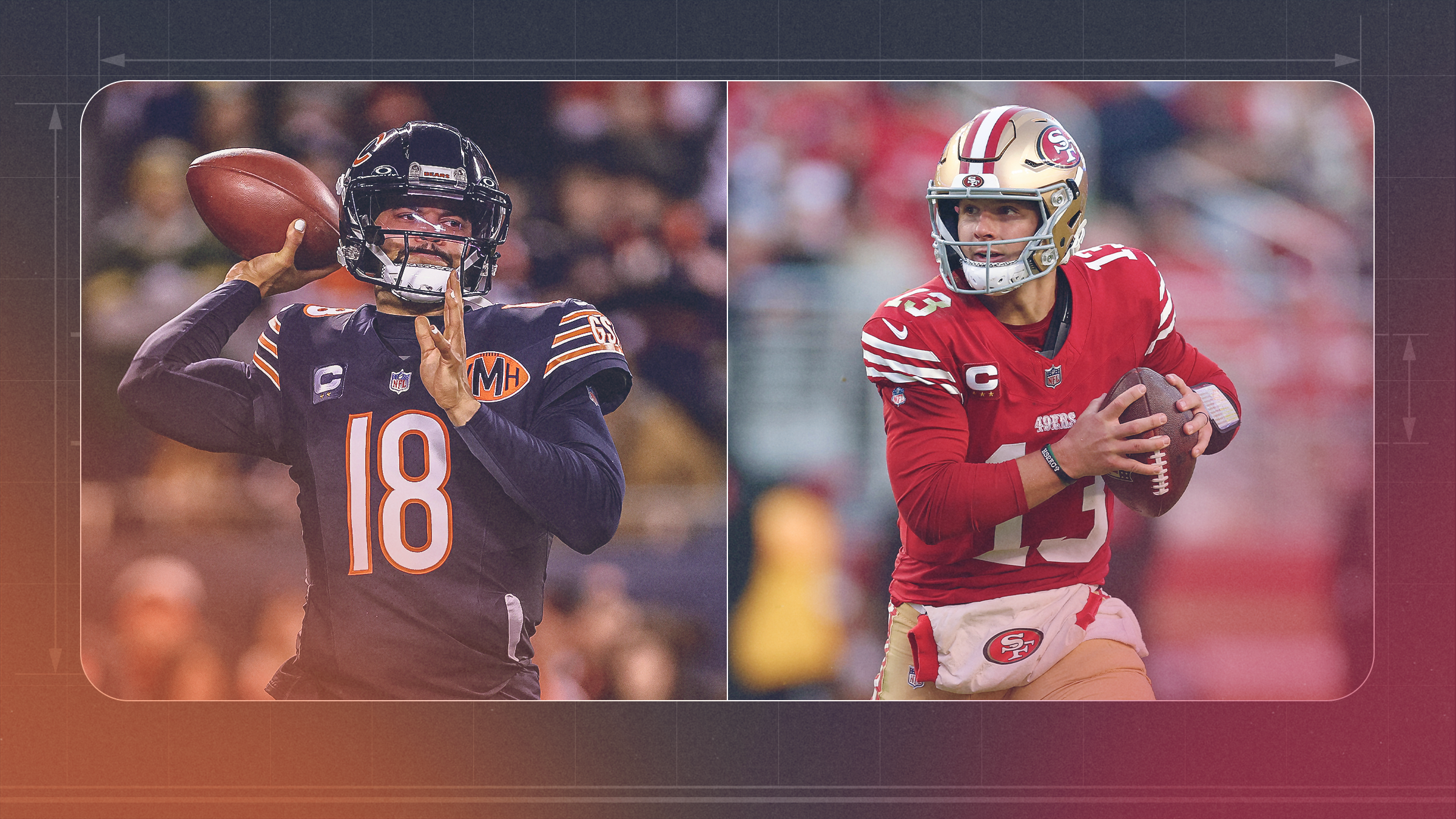Through the first half of the season, the 2020 Seattle Seahawks have the worst pass defense … in NFL history.
They're third-to-last in points allowed per game at 30.4, and the secondary has been especially problematic, giving up a whopping 362.1 passing yards per game. They've already eclipsed the 2002 Chiefs — the NFL's previous-worst pass defense through eight games — who gave up 323 passing yards over the first half of that season.
The Seahawks are now well on pace to shatter the full-season record for worst pass defense held by the 2011 Packers, who went 15-1 and gave up 299 passing yards per game before getting eliminated in the Divisional Round by the eventual world champion Giants.
Are the 2020 Seahawks destined for a similar fate as the 2011 Packers? Or will the Seahawks be able to course correct or otherwise overcome that weakness on the back of Russell Wilson's MVP-caliber campaign? History suggests they won't. Let's examine why.
The Seahawks' Secondary Issues
Seattle's secondary is a far cry from the Legion of Boom.
After trading two first-round picks, a third-rounder and starting safety Bradley McDougald to the Jets in exchange for Jamal Adams, Adams has deflected only one pass this season and has the 78th-worst coverage grade out of 92 safeties according to Pro Football Focus. Adams leads the Seahawks in sacks with 3.5, but he’s allowing a passer rating of 142.6 as the nearest defender in coverage this season.
The rest of the secondary hasn’t been much better: Quinton Dunbar, Shaquill Griffin and Tre Flowers are allowing passer ratings of 101, 115.4 and 107.8, respectively.
The strength of Seattle’s defense is making teams one dimensional by stopping the run and forcing opponents to throw — the Seahawks are allowing only 93.9 rushing yards per game and 4.8 yards per carry with a rushing success rate of just 46%.
It's problematic, however, when the area in which you can make opposing offenses one dimensional is also their most effective way of attacking your defense. We saw this in Week 9 when the Seahawks travelled to Buffalo to take on the Bills, who effectively abandoned the run, passing on 52 of their 65 plays (80%) — up from their overall rate of 60% — to score 44 points. Josh Allen completed 31-of-38 passes for 415 yards and three touchdowns, finishing with a 79.3 mark in ESPN's Total QBR and a passer rating of 138.5.
Even the league’s worst passing offenses are performing well against this Seahawks unit.
The Patriots are 28th in points scored (20.8) and passing yards per game (202.3) while ranking 23rd in passing success rate (47%), yet Cam Newton had his best passing performance of the season against the Seahawks in Week 2. Newton completed 30-of-44 passes for 397 yards and a touchdown with a passer rating of 94.6 in Seattle.
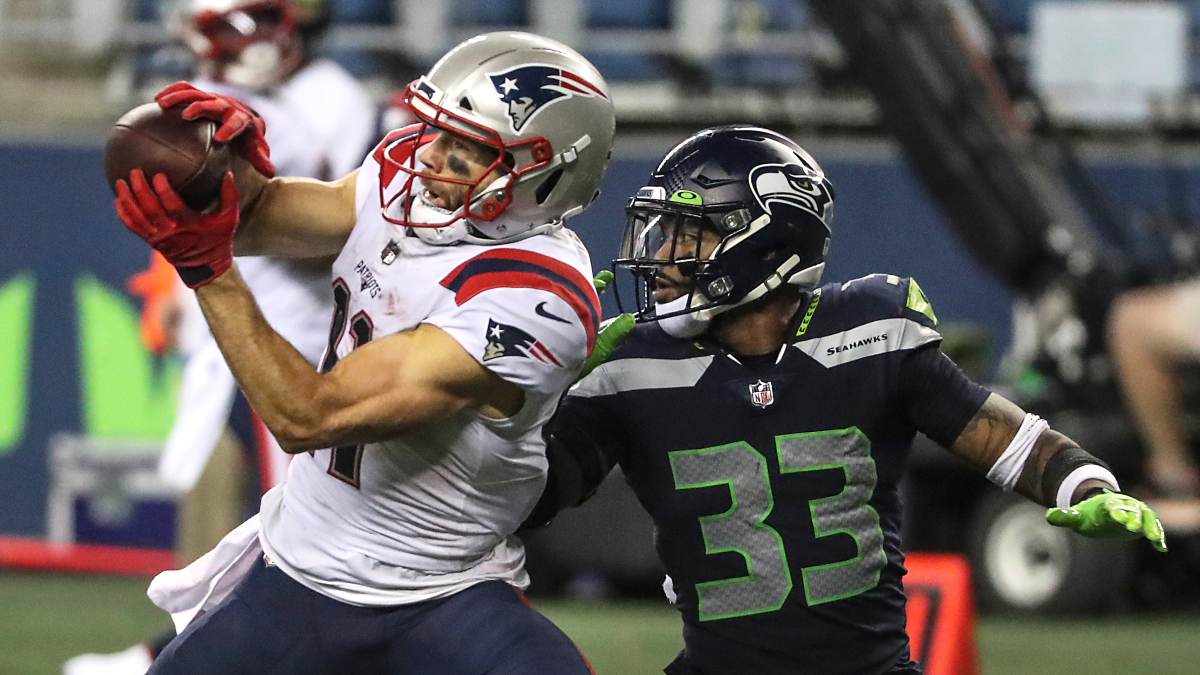
The Seahawks held a 35-23 lead with fewer than five minutes to play in that matchup … until Newton led a seven-play, 75-yard drive to pull the Patriots within five points with 2:16 to play. After a Seattle punt, Newton led New England 80 yards before getting stopped at the 1-yard line on the final play of the game.
In the Seahawks' 37-34 loss to the Cardinals in Week 7, Russell Wilson capped a 12-play, 40-yard drive with a short touchdown pass to Tyler Lockett to give the Seahawks a 10-point lead with just 6:50 to go. For many teams, that might have sealed the game — for the Seahawks, it was just another example of how no lead is safe with this defense.
What Advanced Box Scores Tell Us
The Seahawks' advanced box scores illustrate their struggles in defending the pass compared to the run in two key ways:
- Expected Points Added (EPA): A stat that measures the value of individual plays in terms of points.
- Success Rates (SR): Sharp Football Stats deems a play successful when it gains at least 40% of yards-to-go on first down, 60% of yards-to-go on second down, then 100% of yards-to-go on third or fourth downs.
Notice that all of the Seahawks' opponents so far had a positive passing EPA against them, and only the Falcons and Cowboys had passing success rates worse than 50%.
Is Russell Wilson's MVP-Caliber Play Enough?
Unlike past seasons, the #LetRussCook philosophy has become a necessity as opposed to the "break glass in case of emergency" luxury tool that the Seahawks went to when trailing in the second half of games previously.
Since offensive coordinator Brian Schottenheimer opened the offense, Seattle has gone from the sixth-lowest pass-to-run ratio (54% vs. 46%) to the sixth-highest (62% vs. 38%). The results have been more than favorable as the Seahawks are first in scoring offense (34.3 points per game), offensive success rate, early down success rate and red-zone touchdown percentage, converting on 86.2% of trips inside of their opponent's 20-yard line.
Even in a season when scoring has reached record highs, the Seahawks are one of only two teams that have scored 30 or more points in every game except one (the Packers are the other). The Seahawks' lone exception was a 27-26 comeback victory over the Vikings, during which Mike Zimmer's team dominated time of possession (39:28 vs. 20:32) and ran 83 plays compared to the Seahawks' 52.
It's no coincidence that Wilson has emerged as the odds-on favorite to win MVP.
He’s first in touchdowns (28) and passing yards per game (317), second in quarterback rating (117.1), and third in completion percentage (71.0%) despite his average depth of target being 8.9 yards per attempt — fourth behind Drew Lock, Carson Wentz and Kirk Cousins, none of whom have a completion percentage higher than 65%.
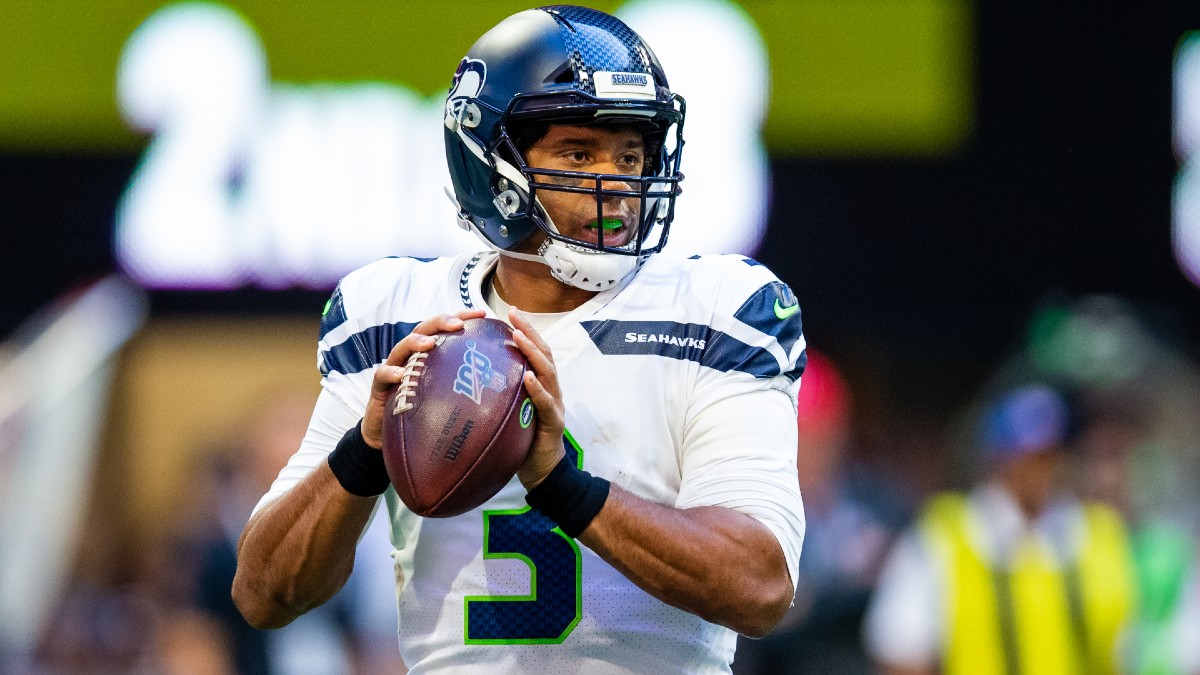
Wilson has carried the Seahawks to a 6-2 record, and they currently have the sixth-best odds to win the Super Bowl. Given their defensive struggles, however, the Seahawks have no margin for error: They've lost two games in which they've scored 34 points because the defense gave up 37 and 44 points to the Cardinals and Bills, respectively.
Can the Seahawks really overcome a historically-bad pass defense? Right now, it looks like Wilson has to play perfect and lead them to victory in a shootout, otherwise they lose.
History Says Seahawks Primed For Early Playoff Exit
I've compiled a list of the top 25 worst pass defenses in NFL history through the first eight weeks of the season as well as through a full season — and none of them have won the Super Bowl.
The 2011 Patriots are the only team from the full-season sample size to make the Super Bowl at all. Of course, the Tom Brady- and Bill Belichick-led Patriots are a statistical anomaly unlike anything we've ever seen in the history of sports.
The counter argument many will make regarding some of the better teams on the following list is that their high offensive output skewed the results of their defense pass yardage as teams that are down a lot would need to throw more to get back into the game. However, the 2011 Packers (35.0 points per game), 2013 Broncos (37.9), 2011 Patriots (32.1), 2017 Patriots (28.6) and 2018 Chiefs (35.3) were all among the top offenses in the league in points and yards during their respective seasons. Nevertheless, their inabilities to stop the pass eventually hurt their chances of winning the Super Bowl.
NFL's 25 Worst Pass Defenses Through 8 Games
Besides the Seahawks, the Falcons are the only other team from the 2020 season on this list with 311.3 passing yards allowed per game. But it's worth noting that Atlanta's secondary was decimated by the injury bug as the Falcons lost cornerback Ricardo Allen as well as safeties Keanu Neal, Damontae Kazee and Jaylinn Hawkins.
As bad as Atlanta's pass defense was during the end of the Dan Quinn era, Seattle's defense has been worse by more than 50 yards.
Many of the 23 remaining teams missed the playoffs altogether, but the exceptions were those led by Brady, Peyton Manning, Aaron Rodgers, Drew Brees, Nick Foles during his 27-touchdown, two-interception campaign, and Robert Griffin III during his sensational rookie season.
Too Late For the Seahawks To Turn It Around?
The 2013 Broncos and 2017 Patriots were among the worst pass defenses in NFL history through the first eight weeks of their respective seasons, however they were able to improve defensively enough over the second half, with both eventually making (and losing) the Super Bowl.
The 2013 Broncos gave up 299 passing yards per game through the first half of that season, but finished allowing only 254.3. But despite having the best offense in the league that season and scoring 37.9 points per game, they ran into a historically-great Seahawks defense led by the Legion of Boom in Super Bowl 48, losing 43-8.
The 2017 Patriots opened that season allowing 295.5 passing yards per game, but finished giving up only 251.25. Their struggles defending the pass did eventually catch up with them in Super Bowl 52 as Foles completed 28-of-43 passes for 373 yards and three touchdowns en route to a 41-33 victory for the Eagles.
NFL's 25 Worst Pass Defenses Through A Full Season
It's not a coincidence that two of the worst passing defenses in NFL history materialized in 2011, a season in which we saw the expansion of the defenseless receiver rule, launching into offensive players and lowering the head to make forcible contact with a helmet to any part of a defenseless player's body.
Ironically, both of these teams saw their seasons end at the hands of Eli Manning.
The 2011 Packers still hold the record for most passing yards allowed with 299 per game. They lost at home in the Divisional Round to the Giants as Eli Manning completed 21-of-33 passes for 330 yards and three touchdowns on the way to a 37-20 victory. Despite having the best offense that season, scoring 35.0 points per game, the Packers had no margin for error when their offense scored below expectation.
The 2011 Patriots gave up 314 yards through the first half of the season and finished giving up 293.9. Although they still made the Super Bowl, they blew a 17-9 second-half lead as Eli Manning completed 30-of-40 passes for 296 yards and a touchdown, completing a game-winning drive to defeat the Patriots 21-17.
In Patrick Mahomes' first full season as a starter, the 2018 Chiefs saw their Super Bowl hopes die in overtime of the AFC Championship Game against the Patriots. Kansas City's defense couldn't get off the field as Brady converted on third-and-10 three times on the way to a 37-31 overtime victory.
All things considered, the Seahawks have a prolific offense — Wilson gives them a chance to win any game, but as we've seen from the teams led by Rodgers, Peyton Manning, Brady and Mahomes, at some point they will need their defense to stop the pass.
It remains to be seen if the 2020 Seattle Seahawks are up for the task.


